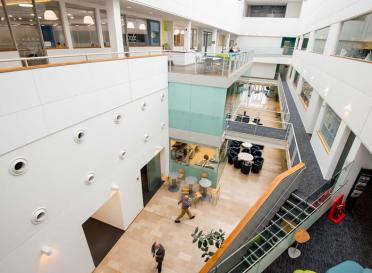
Life at Earlham Institute
We believe that our people are our greatest asset, and we want you to have the freedom to achieve your very best work here.
Ectomycorrhizal fungi (ECMF) are a crucial yet often overlooked group of organisms that play a key role in the functioning of terrestrial ecosystems.
These fungi form symbiotic associations with plant root systems, where plants supply sugars to their fungal partners and, in return, ECMF provide essential nutrients and confer additional benefits, such as enhanced tolerance to drought and salinity. In the face of rapid environmental change, understanding how different organisms respond to shifting conditions is more important than ever.
Despite the significance of ECMF for ecosystem functions, we still have a limited understanding of their functional and genetic diversity.
This project aims to uncover functional differences among ECMF species at the genomic level by examining the variation in copy numbers of ecologically relevant genes, differential selective pressures on key genes, and changes in gene expression regulation related to nitrogen, phosphorus and carbon cycles in ecosystems.
Research methodology
This studentship is ideally positioned between the Earlham Institute (EI) – which focuses on the application of the latest genomics – and the Royal Botanic Gardens Kew (RBGK) – which focuses on exploring and understanding fungal and plant diversity.
The student will
To do this, the student will conduct fieldwork, microbiology experiments, comparative genomics and transcriptomic analyses.
Training
Person specification
We seek an enthusiastic individual who is interested in fungal ecology and evolution, with prior experience in programming and basic statistical skills.
Entry Requirements
At least UK equivalence Bachelors (Honours) 2:1. English Language requirement (Faculty of Science equivalent: IELTS 6.5 overall, 6 in each category).
Acceptable first degree: Biology


We believe that our people are our greatest asset, and we want you to have the freedom to achieve your very best work here.

Norwich is a city of culture, with its rich history of art and writing, as well as a city of science - hosting some of the leading centres for life science research in the world.

The behaviours and communication skills we expect from candidates.